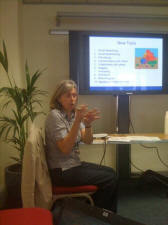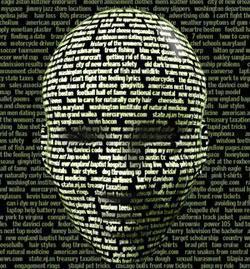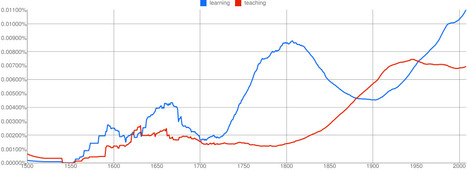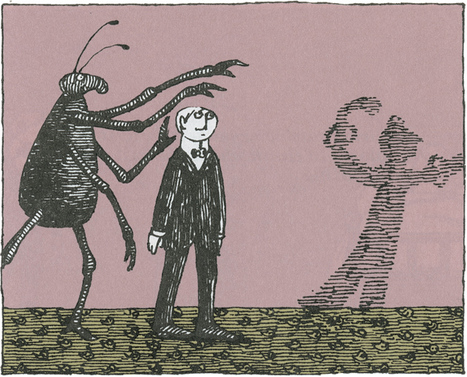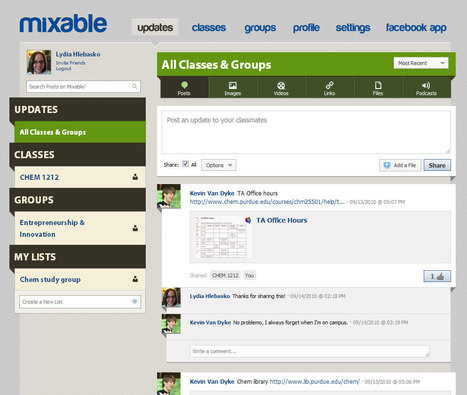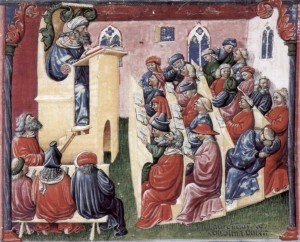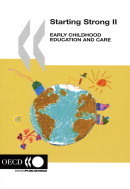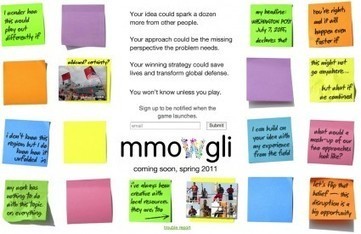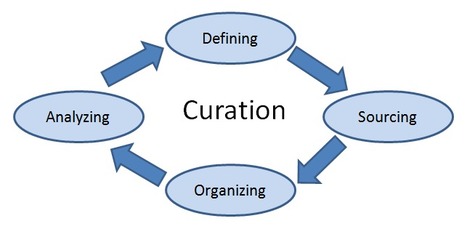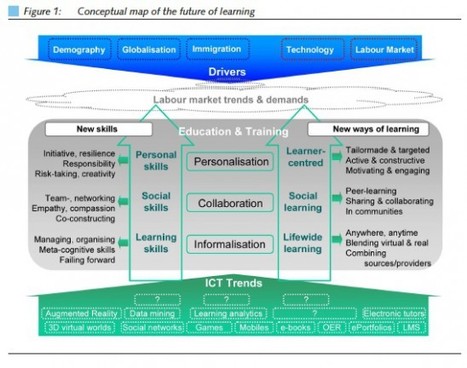Another voice added to the growing chorus proclaiming student debt as the next economic bubble set to burst. Clearly, this is an enormous problem that is growing rapidly in size and intensity. -JL
Get Started for FREE
Sign up with Facebook Sign up with X
I don't have a Facebook or a X account

| Tags |
|---|
 Your new post is loading... Your new post is loading...
 Your new post is loading... Your new post is loading...
I've just been reading yet another article that expresses the view that Twitter is a trivial, inconsequential tool and has no place in learning, so I thought I'd write this posting on my experiences of using Twitter in a face-to-face Workshop. Via Tania Sheko
Todd Finley defines social media as the new frontier, and adolescents are the early frontierspersons. He includes ten tips for adding social media tools into the classroom.
|

|
Scooped by Jim Lerman |
By analysing over 500 billion words the Google Books Ngram Viewer allows you to compare the history of terminology and language from approximately 5 million digitised books.
The graph above shows my search for the terms “teaching” and “learning” in publications between the years 1500 and 2010.

|
Scooped by Jim Lerman |
Editor’s Note: the recent trade book Computer Games and Instruction brings together the leading edge perspectives of over a dozen scientists in the area of videogames and learning, including a very insightful analysis –excerpted below– by Harvard’s Chris Dede. Please pay attention to his thoughts on scalability below, and enjoy!

|
Scooped by Jim Lerman |
Turnaround for Children focuses on students’ psychological and emotional well-being, in addition to academics, to change their troublesome behavior.

|
Scooped by Jim Lerman |
Linda Darling Hammonds commencement address at Columbia University Teachers College, May 18, 2011
At a moment when the nation's public education system is under siege, the need for qualified teachers who are committed to creating exciting and empowering schools for all children is more urgent than ever.

|
Scooped by Jim Lerman |
Data is everywhere. It can be manipulated in infinite ways. I'd like to see more tools like my Nike+ app or the Jawbone UP to be able to collect data that I can use to inspect patterns and behaviors in order to more closely examine my own teaching in order to learn from the data, set goals, and improve my personal performance.

|
Scooped by Jim Lerman |
"What is utterly creepy today can easily be the norm tomorrow."
When opting out of new tech, you're now deciding not to be part of society.
Technological progress is happening faster and faster. Chipchase sees that trend, but with an added scope: Even as tech rollouts of new products are complicating our own holiday shopping lists, they are also reaching what used to be the farthest markets with remarkable speed. A lower-middle-class, 21-year-old woman in Nigeria now has a BlackBerry as her first phone. What used to be strictly the domain of the “Wall Street Warrior,” is now an accessible accessory.

|
Scooped by Jim Lerman |
Salman Khan's educational website of 2,400 video lessons could be the solution to middle-of-the-class mediocrity.

|
Scooped by Jim Lerman |
This could only have happened so rapidly and effectively in the 4th era...trading a paper clip for a house.

|
Rescooped by Jim Lerman from Oups, I am Wired |
Early this April, when researchers at Washington University in St. Louis reported that a woman with a host of electrodes temporarily positioned over the speech center of her brain was able to move a computer cursor on a screen simply by thinking but not pronouncing certain sounds, it seemed like the Singularity—the long-standing science fiction dream of melding man and machine to create a better species—might have arrived. At Brown University around the same time, scientists successfully tested a different kind of brain–computer interface (BCI) called BrainGate, which allowed a paralyzed woman to move a cursor, again just by thinking. Meanwhile, at USC, a team of biomedical engineers announced that they had successfully used carbon nanotubes to build a functioning synapse—the junction at which signals pass from one nerve cell to another—which marked the first step in their long march to construct a synthetic brain. On the same campus, Dr. Theodore Berger, who has been on his own path to make a neural prosthetic for more than three decades, has begun to implant a device into rats that bypasses a damaged hippocampus in the brain and works in its place.
Via axelletess

|
Scooped by Jim Lerman |
A fast and thorough examination of a new type of social LMS called Mixable in the online quarterly publication Educause.
In the fall of 2010, Purdue University released Mixable. This new web and mobile application enables students to build and share their personal learning environments using the social tools they already know — Facebook, Twitter, and Dropbox. The system is presented as Facebook, web, and mobile applications, with features designed to facilitate common tasks such as status updates, microblogging, document sharing, and bookmarking. Mixable also offers Facebook friend suggestions by blending the students' own enrollment and learning community information with their already existing networks of friends within Facebook (Figure 1).

|
Scooped by Jim Lerman |
Links to a number of well done videos and publications from the MacArthur Foundation regarding youth, media, schools, libraries, new media, and learning. -JL

|
Scooped by Jim Lerman |
While the U.S. is likely to recover from the current recession (technically no longer a recession, but it sure feels like one to the 99%), it will probably not occupy the same prominent place that it once did and the structure of its economy will be considerably different. In the new world that is emerging, the nature of jobs and how they are compensated is changing, mostly not for the better of employees. Many of the professional jobs that college and university alumni have traditionally held, including those in higher education, are likely to be more precarious and less well paid.

|
Scooped by Jim Lerman |
When dealing with change in colleges and universities, it’s good to recall what Machiavelli said in The Prince: “. . . one should bear in mind that there is nothing more difficult to carry out, nor more dubious of success, nor more dangerous to administer than to introduce a new system of things . . . .” This is particularly true in higher education because of the unique relationship these institutions have to various constituencies ─ faculty, students, administrators, boards of trustees, state and federal governments and the general public.

|
Rescooped by Jim Lerman from Social Media Research |
We have developed a set of six scenarios for schooling in the future up to 2020. They have been clustered into three main categories: Scenarios 1a and 1b "Attempting to Maintain the Status Quo", 2a and 2b "Re-schooling", 3a and 3b "De-schooling".
Via Ilona Buchem

|
Rescooped by Jim Lerman from Augmented Collective Intelligence |
"mmowgli is both the coolest project I have ever worked on and the hardest to describe in words, but here it goes: mmowgli is an experiment in generating collective intelligence and a pilot project being developed by the Office of Naval Research.
Beyond that, mmowgli is ultimately the answer to a few questions, ones that haunted me every day during my tour as a Science Advisor at the Pentagon: why did I experience such a disconnect between technologists and “innovators,” on one hand, and warfighters and end users on the other? Why didn’t “game changing innovations” generate more enthusiasm from those who were “in the game?” And what was I doing to make it better?
As my Pentagon tour drew to a close, these questions nagged at me and morphed into a thousand others: What if we took a heavy, formal approach, and made it lighter and more of a continuous conversation instead of a blueprint? What if you didn’t need a fully formed idea to make a contribution? What if ideas, even half-formed ones, could meet up in space and recombine with other ideas to form new ones? What if this conversation engaged more stakeholders and tolerated more excursions? Finally, what if this conversation became so rich and compelling that, instead of truncating the debate, it actually enlarged the universe of possibilities?"
Via Howard Rheingold

|
Scooped by Jim Lerman |
Back here at EdWeek headquarters near Washington, and a few days removed from a wonderful Virtual School Symposium in Indianapolis, I'm left cautiously optimistic about the future of virtual schooling but wary of its potential to be politicized as it moves toward the main stream.

|
Scooped by Jim Lerman |
Curation tools present an exciting new genre of search tool--strategies for scanning the real-time environment, as well as opportunities for evaluating quality and relevance in emerging information landscapes.

|
Rescooped by Jim Lerman from gpmt |
Personalisation, collaboration and informal learning will be at the core of learning in the future. The increased pace of change will bring new skills and competences to the fore, in particular generic, transversal and cross-cutting skills….
With the evolution of ICT, personalised learning and individual mentoring will become a reality and teachers/trainers will need to be trained to exploit the available resources and tools to support tailor-made learning pathways and experiences which are motivating and engaging, but also efficient, relevant and challenging…
Most importantly, traditional E&T institutions – schools and universities, vocational and adult training providers – will need to reposition themselves in the emerging learning landscape . They will need to experiment with new formats and strategies for learning and teaching to be able to offer relevant, effective and high quality learning experiences in the future.
Via GRIAL Univ Salamanca. Aprendoenred., Rogério Queirós, DAvid Cordina, michel verstrepen

|
Scooped by Jim Lerman |
Mind-expanding descriptions and scenarios about learning for kids who will enter kindergarten in 2012...in other words the HS graduating class of 2025. Specific examples given in relation to: Learning, Learners, Learning Agents (what we call teachers today), the Learning System, and Learning Tools. Lots of hard work went into this; lots of thinking will ensue. -JL

|
Scooped by Jim Lerman |
It's not until we encounter an unexpected hurdle that the chains of cognition are loosened, and we experience newfound access to creativity. Frontal Cortex blogger Jonah Lehrer explains why.

|
Scooped by Jim Lerman |
3D printers let designers make three dimensional objects by just hitting "print" on their computers. New businesses, like custom prostheses, are taking advantage.
Certainly, technologies such as this create the opportunity for a million items made once, rather than one item made a million times. Mass customization is at hand. -JL




